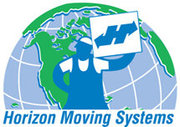May 31, 2011 Colleen Crowninshield- Alternative Fuel
According to Colleen: The Vehicle Technologies Program is developing more energy efficient and environmentally friendly highway transportation technologies that will enable America to use less petroleum. The long-term aim is to develop "leap frog" technologies that will provide Americans with greater freedom of mobility and energy security, while lowering costs and reducing impacts on the environment.
__________________________________________________________________________________________________________________
- Local Food
Did you know that the average meal travels 1200 miles to get to your plate? Emissions from the transportation of our food can be a large component of our carbon footprints.
You and your students can shrink your carbon footprints by eating locally grown food whenever possible. Try taking your students on a field trip to a local farm or farmers' market, or challenge your students to eat only local food for a day. Find a searchable directory of farm, markets and“ Local Harvest.”
- Plastic Water Bottles
80% of the 25 billion single-serving plastic water bottles Americans use each year, end up in landfills. Recycle your bottles, or better yet, choose to reuse with a refillable water bottle made of refill safe material.
- Responsible Purchasing
Buying new products made from recycled materials allows you to “close the loop.” Thus, creating a market for the recycled material items either recycled from your curbside or through other recycling programs.
Did you know the U.S. Environmental Protection Agency estimates that hotels use more than 180 billion gallons of water each year? That’s enough for more than 200 glasses of water – for every person in the world!
Download the website sponsorship guide










